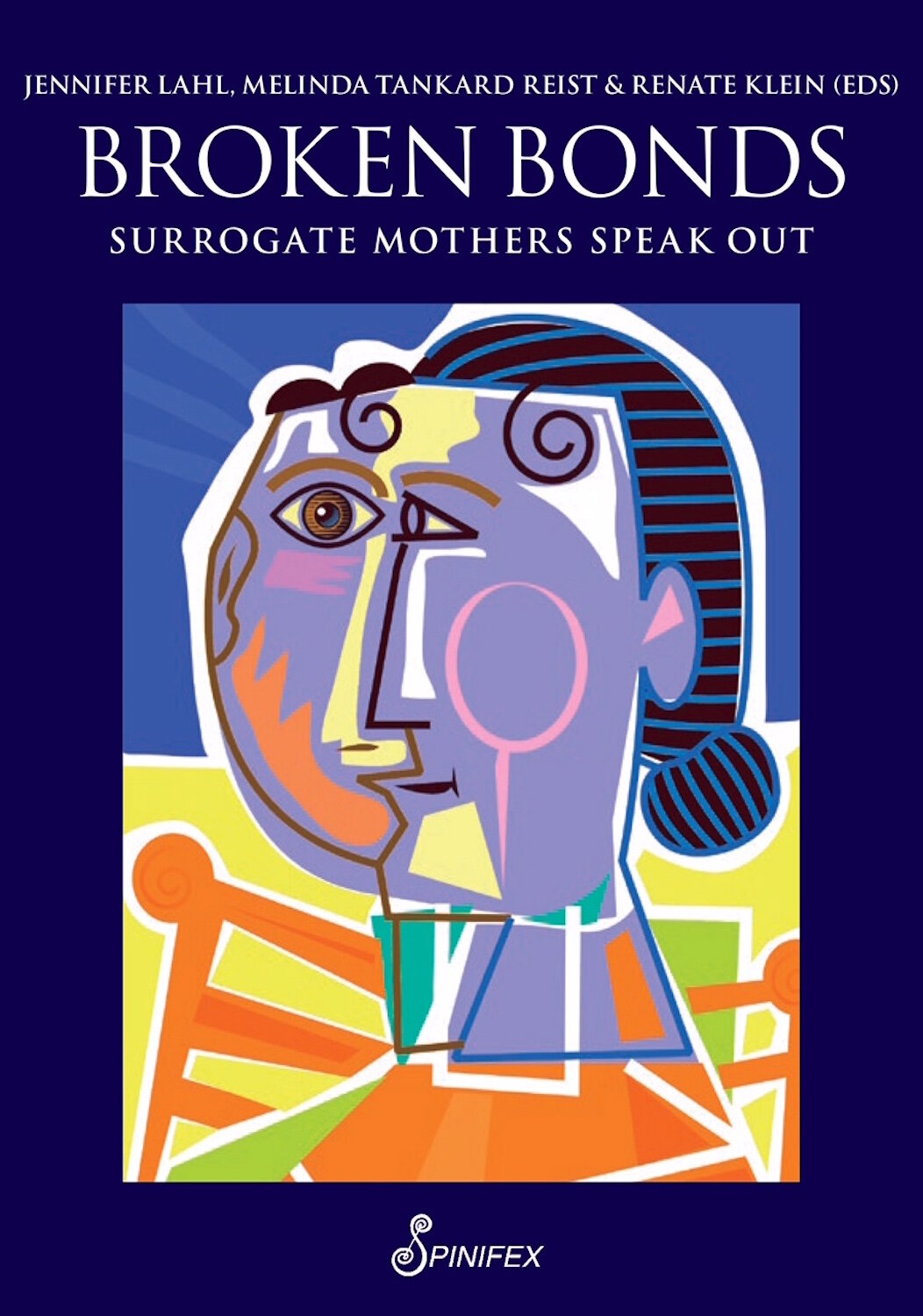Table of Contents
Acknowledgements
Introduction
Chapter 1: What is surrogacy?
Chapter 2: Short- and long-term harms of surrogacy
Chapter 3: What of the children born from surrogacy?
Chapter 4: Can surrogacy be ethical?
Chapter 5: Is regulation the answer?
Chapter 6: Resistance – past and present
Conclusion: Stop surrogacy now
Bibliography
Index
Reviews
As one reads Renate Klein’s book entitled Surrogacy: A Human Rights Violation, it becomes clear that she is not one of those who would prefer to stay in the safer shallow end of the pool; rather she plunges deep into the ocean of her topic. This book leaves no loopholes in the discourse about surrogacy and contends that it is an outright violation of human rights. Klein substantiates her arguments with extensive literature from academic and non-academic sources.
...It is a valuable resource for academics and activists alike. She ends her book with an interesting note which I quote: We must never shrug our shoulders and say “oh well, surrogacy exists, let’s just regulate it and make it ethical.” Women and their children who get harmed in the surrogacy industry deserve better (Klein 2018, p. 178).
Read the full review here.—Sheela Saravanan, Heidelberg University, Dignity: A Journal on Sexual Exploitation and Violence
... I found the entire book to be quite readable in regard to language and industry terminology, with the chapter on regulation as a slight exception. Readers may feel bogged down by listings of various conventions and committees with long winded names, but Klein does make sure to distill extended descriptions down to the key points, with helpful references to other sections of the book as their topics overlap.
... In addition to presenting a number of alarming stories and testimonials, Klein asks unsettling questions that must be considered when the answers affect human lives.
... Surrogacy: A Human Rights Violation attacks surrogacy from too many angles to cover here, but they all flow back to soundly support what Klein declares in the title. Commercialization, eugenics, entitlement; a dozen doors are opened for readers to pursue further research after this introduction.
... Surrogacy: A Human Rights Violation is not a personal attack or vendetta; it’s not a call to vote a certain way or endorse a certain person. At its core, this book strives to promote the rights and welfare of women and children, and that’s a cause that transcends party lines and international borders.
Read the full review here.—Hannah Ens, The Mercury
FEATURE: The suffering of surrogacy: A veteran feminist spells it out
In Surrogacy: A Human Rights Violation Dr Renate Klein dares to take on the surrogacy industry without begrudging but with plenty of sass and hard evidence. A dogged feminist academic and publisher for over thirty years, her critique of neoliberal capitalism is always underpinned by an authentic concern for women’s wellbeing and a focus on patriarchal structures.
... She never fails to point out the power differentials. She completely rejects surrogacy in all its forms.
... As a radical feminist and lesbian academic, Dr Klein’s views are not mainstream. Yet any reader will recognise that they are common-sense, based on women’s concrete experiences.
... Her radical approach is to uphold the dignity of women as whole and unique beings, and to expose and condemn the surrogacy industry as a patriarchal, neoliberal capitalist exploiter of women. This book is short but packs a punch and additionally is a good primer for those who want to learn more about how radical feminism, as distinct from liberal feminism, contributes to global social justice movements.
Read the full feature here.—Selena Ewing, www.mercatornet.com
Author Dr. Renate Klein, a co-founder of FINRRAGE (Feminist International Network of Resistance to Reproductive and Genetic Engineering), makes a firm case for why legal surrogacy and its associated fertility industries are morally unconscionable. Surrogacy: A Human Rights Violation fiercely criticizes the practice of surrogacy - that is, having a woman carry and give birth to a baby, in order to serve the reproductive needs of another person or persons, who will become the child's parent(s). Both "commercial surrogacy", where the surrogate mother is paid, and "altruistic surrogacy", where the surrogate mother is not compensated, are subject to the harshest scrutiny.
... Regardless of the reader's personal stance on the matter, Surrogacy: A Human Rights Violation deserves extended study and discussion, and is highly recommended for social issues shelves.
Read the full review here.—James A. Cox, Editor-in-Chief, Library Bookwatch January 2018
Rigorous, timely scholarship combined with eloquent, empathetic writing makes Renate Klein’s Surrogacy: A Human Rights Violation a must-read… Klein allows the voices of surrogacy’s many victims to be heard. She is a biologist, and her scientific explanations are related clearly and thoughtfully–I learned a lot from her explanations. This is a user-friendly book, perfect for those who don’t have time to waste sifting through intellectual density, who want the facts and astute interpretations of them.
—Kate Rose, Dignity: A Journal on Sexual Exploitation and Violence
This small but mighty book is densely packed with an examination of surrogacy and her objections to the “dangerous and exploitative nature of the surrogacy process.” She boldly and succinctly exposes the dangers and dilemmas of what she calls the “latest frontier of violence against women.”... Regardless of your current attitude towards surrogacy, any man or women considering surrogacy should read this book. It is both educational and enlightening. Like Klein, I encourage readers to take an informed stance on the practice of surrogacy. To paraphrase her, it is critical that we not blindly accept information provided by mainstream media, pharmaceutical companies, and those sure to gain monetarily from the practice of surrogacy. Read the full review here.
—Kallie Yeoman, MS, BSN, RN, The Center for Bioethics and Culture Network
Renate Klein is a winner for her new book Surrogacy: A Human Rights Violation. She is a lifelong scholar and activist who has worked for decades opposing third-party assisted reproduction. Her book is a solid contribution to the important debate around surrogacy. She unapologetically calls for the absolute abolishment of the practice as a violation of human rights.
—Jennifer Lahl, President CBC, Center for Bioethics and Culture Network (CBC) Newsletter
Those uneasy about surrogacy will find their disquiet confirmed by this forceful polemic. And readers who believe it comes down to a woman’s right to choose what she does with her body may find themselves thinking again. As a seasoned activist, Renate Klein knows the power of plain language. Read the full review here.
—Fiona Capp, Sydney Morning Herald
...an important book that provides a much-needed opposing view on surrogacy.
—Marisa Wikramanayake, Books+Publishing
Klein's easily-read, yet exactingly learned 200-plus-page paperback covers the surrogacy journey from pre-placement to delivery, continually decrying the unethical, dangerous, damaging and uncertain aspects of this 'baby trade', recently estimated by the World Health Organisation to net several tens of millions of US dollars for fertility clinics, 'baby brokers' who match intending parents with surrogate agencies, and those surrogate agencies.
—Katrina Kincarde-Sharkey, North and West Melbourne News
My eyes have been opened about an issue that was sadly not much on my radar prior to reading her incisive analysis and discussion of the serious and complex problems involved in surrogacy and its allied industries.
—Dr Victoria Kuttainen, James Cook University
While the title makes the author's opinion of surrogacy clear, don't dismiss it out of hand if you hold a different view. Far from being an ultra-conservative manifesto, Klein references a wealth of resources, including quotes and viewpoints from pro-surrogacy parties, which are presented without malice before being critically examined… Surrogacy: A Human Rights Violation is not a personal attack or vendetta; it’s not a call to vote a certain way or endorse a certain person. At its core, this book strives to promote the rights and welfare of women and children, and that’s a cause that transcends party lines and international borders.
Read full review here—BookFreakOut, Amazon.com









